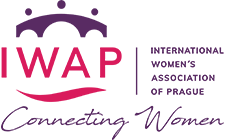On the surface of things, donating to charity seems pretty straightforward. But donating in a way that will truly be of benefit to people who need support can be a lot more complex.
One of IWAP’s three stated missions is to support Czech charities, so many of us have given the process of making an effective donation a lot of thought.
The ultimate guideline is to “Do no harm!”
Examples of harm may include:
- free handouts that will keep people in a poverty cycle
- actions that breed short term dependency and limit longer term initiatives
- donations that compete with or replace local initiatives or industries
- charity that is paternalistic or culturally insensitive
- donations of goods that charities do not know how to use or maintain
- support for services that segregate disadvantaged people from the mainstream
- propping up of inadequate or outdated services
Such donations can perpetuate injustice or even worsen the problem.
To make charitable support effective, donors need to be partners, not rescuers. Charity works best when people work together to understand needs in context, and share in solutions. Donors should not assume they know the problems or the answers. It is usually far more effective to partner with a trusted charity.
So here is the deal about donations.
It is IWAP’s philosophy to:
- Understand our own core values, the people or communities that we wish to help, and what we hope to encourage
- Ensure that the organizations we support are effective and legitimate charities (for example, some privately owned thrift stores may seek donations with minimal actual involvement with charities, some charities may be self-perpetuating with top-heavy management and costly overheads, or other associations may not be known by or have the support of their communities)
- Consider charities that are supported by other agencies we trust, particularly if they are known to devote time and energy to selecting the charities they assist. Most reputable organizations receive funding from more than a few sources
- Ask questions and request information if we don’t know much about a charity – mission statements, financial reports, annual reports, actions and progress. Worthy charities will be happy to share their information.
- Select a only a small number of charities to support and concentrate our giving. Larger donations will make a greater difference, require less administration and allow more effective use of the funds.
- Find out what need they are addressing and what they need to address it. Give what they want. This usually means to give money. Know what they are spending it on.
- Make sure that their initiative can keep going once our funding or support ends. Find out whether the support is short term, long term, a specific item, core costs or project costs, and whether they have a sustainable plan. For example, if they seek building or infrastructure costs, check that they have a plan for maintenance and longer term use.
- Only give items that charities tell us they need. Don’t dump clothes, toys, or other items unless the charity asks for them or agrees to take them. Never give things that are not new or in excellent condition, are inconsistent with the season, or need repairing. Charities do not usually have much space for storage and do not have the capacity to sort through or dispose of things they don’t need.
- Be consistent and reliable with what we offer, particularly if donating time, or assistance to alleviate immediate problems (such as fresh sandwiches for homeless people).
- Always build upon people’s dignity and abilities, and protect their rights.






